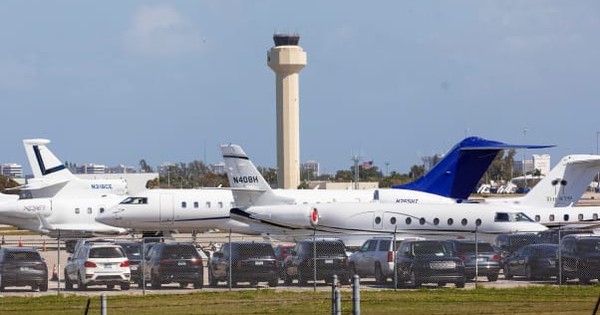Global volatility overshadows the World Economic Forum
After a two-year hiatus, the World Economic Forum (WEF) is back in Davos as many of the values they built are fracturing.
For the past half century, Klaus Schwab, Founder of the World Economic Forum (WEF), has hailed an interconnected world where the free flow of goods, services, people and ideas will lead to common prosperity and peace. However, over the past two years, the upheavals of the world have challenged that aspiration.
The pandemic has spurred a wave of isolationist foreign policy shifts, making supply chains fragile and separating China from the rest of the world. Then, the Ukraine crisis raised fears of broader global conflict.
And even before pandemics and wars, internal divisions strained superpowers like the US. Now, as Schwab chairs the first WEF meeting in Davos (Switzerland) since the start of the pandemic, he is faced with a world that looks very different from the one he has been trying to create for more than 50 years. .
“I think this will be the first World Economic Forum where Klaus himself doesn’t believe it’s a world led by the West and the rest of the world following,” said Ian Bremmer, Principal Scientist. has regularly attended this event, commented.
Mr. Schwab himself seems to understand that the global order as he envisioned it has changed more or less. “We live in a different world. When we met in 2020, we had a lot of great concerns. Now we have two more events that really add to the gravity of the situation,” he said. speak.
But while the world may have changed, Davos has not. As usual, the annual meeting will feature politicians, officials, executives and nonprofit leaders. Current issues like war and Covid will be discussed, along with perennial threats like climate change and cybersecurity. And Ukraine’s president, Volodymyr Zelensky, will speak online before other heads of state.

Protesters against globalization at the last WEF took place in January 2020 in Davos, Switzerland. Photo: AP
Ukraine hot spot
Nothing challenges the worldview in Davos more directly than Russia’s military operation in Ukraine New York Times.
Moscow has been a strategic rival of the US and Europe for many years, but their economic ties are deepening. Hundreds of multinational corporations have come to operate in Russia, and Europe has emerged as a major importer of their oil.
But the Ukraine crisis shows that Western leaders have fundamentally misjudged the Russian leader. “I just couldn’t come up with a reasonable explanation,” Schwab said. He himself met Mr. Putin at the end of 2019 in an attempt to persuade the Russian President to come to Davos to deepen relations with the West. And he failed.
Lesser, Global President of Boston Consulting Group, says one of the big ideas of the WEF is that sharing economic prosperity will bring the world closer together. “I think it’s much more difficult now. Sadly, we used to hope,” he said.
Indeed, the war itself – as well as the fact that other major powers, such as China, India and Brazil, are unwilling to side with Ukraine – makes it clear that the world has never been as cohesive as some would like to believe. . According to Bremmer, these countries are basically not linked with each other because of different political systems, economic systems and levels of wealth.
In the past, the WEF has played a peacemaker role. In 1988, Greece and Turkey signed the “Davos Declaration”, marking a new era of improved relations between longtime rivals. However, this year there will be no negotiations between Ukraine and Russia in Davos. There won’t be any Russians in attendance.
Mr. Schwab banned not only Russian government officials but all Russian citizens from attending. That decision in itself could undermine Davos’ credibility as a place where all voices can be heard. “This is where everyone is invited, isn’t it? And now it’s suddenly not,” Bremmer said.
It is imperative to cooperate
Even as the war in Ukraine is proving the limitations of the worldview in Davos, many still believe in the value of a linked economy. “Basically, I believe that globalization – with people and ideas, goods and services moving faster and faster across borders – is what makes you a global middle class in 50 years. It’s the best story out there,” Bremmer said.
Globally, statistics show that the number of people living in extreme poverty has plummeted in recent decades, while access to electricity, clean water and nutritious food has steadily increased. “Globalization has lifted millions and millions of people out of poverty,” Schwab said.
However, experts also acknowledge its limitations. There are systemic problems, even in the wealthiest countries. “It’s clear that there are a lot of problems in Western economies, from underinvesting in education, to healthcare costs, to a lack of infrastructure,” said Dambisa Moyo, an economist. Zambia reviews.
Schwab believes that the need for multinational cooperation is more and more urgent. “Cooperation regarding addressing our global challenges is absolutely necessary, because we are interdependent,” he said.
This is especially true when it comes to climate change. Although most of the world has committed to rapidly reducing emissions, only a few appear to be on track to meet the target. That means global temperatures are likely to continue to rise.
And as the effects of the war in Ukraine unfold, experts are warning of a potential food crisis that could stretch from Africa to South America and cause social unrest. and mass migration. “The hungry are angry,” Schwab said.
The world is fragmenting
In a world that seems to be falling apart, Davos is one of the few places that brings together powerful figures from many fields and geographies. “It’s really the only place where public policy, business and civil society come together,” Moyo said.
Many executives will close their deals in hotel boardrooms in Davos. Meanwhile, policymakers and nonprofit leaders focused on how to prevent an escalation of hostilities, a looming food crisis, or upheaval in economic centers. world power in the years to come.
Bremmer said that, for many people, it only takes 5 days to make as much money as possible, when they meet a partner for 30 minutes. “But for those who are really thinking about Davos’ role in the world, what will be talked about is the ‘New Cold War’, Russia’s separation from the West, and the incredible alignment of America and Europe. Europe,” he said.
Schwab doesn’t call it a “new Cold War”, but he says we are facing the prospect of a “fragmented world”. “We run the risk of splitting into a multi-power system with different philosophies, ideologies. Even within countries, we have polarization that you’ve never experienced before 10, 15 years ago,” he said.
At risk with Russia’s embargo, China’s isolation and the prospect of more global instability ahead, the WEF is no longer a forum for the whole world.
“That’s not what Klaus wanted. And to be honest, it’s not what any of us wanted,” Bremmer said.
Session An (according to NYT)
at Blogtuan.info – Source: vnexpress.net – Read the original article here



